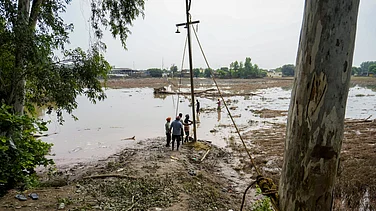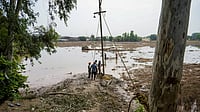Gautam Adani, founder of the Adani Group, is accused by US authorities of engaging in a USD 250 million bribery scheme to secure solar power contracts, highlighting the difficulties in finding buyers for renewable energy in India. The Adani Group has denied the charges.
Despite the Indian government's commitment to transitioning from coal to renewable energy, state-owned power distribution companies have been slow to sign power purchase agreements (PPAs) for renewable energy projects. This delay has obstructed smooth progress towards achieving India’s energy goals.
India's Struggle with Renewable Energy Targets
India’s target to add 175 gigawatts (GW) of renewable energy by 2022 remains unfulfilled as the country is still heavily dependent on coal, which made up 75 per cent of energy generation last year. The government has increased efforts to meet its 2030 goal of 500 GW of non-fossil fuel energy, as per The Economic Times report.
Many Indian states are unprepared for the rapid expansion of renewable energy, lacking the necessary infrastructure, storage solutions and reliable energy grids. These issues make states reluctant to commit to renewable energy, further slowing the transition.
Parallel to this renewable energy push, India is also increasing domestic coal production to meet its immediate energy needs. The Coal Ministry has launched a sustainable coal production initiative and reopened discontinued mines to ensure energy security.
While India works towards its renewable energy goals, coal remains a key part of the energy mix, accounting for the majority of electricity generation. These dual efforts -advancing renewables while securing coal supply - reflect the challenges India faces in transitioning to a greener energy future.
Adani Green's Troubles
Adani Green, India’s renewable energy company, faced a three-year delay in securing buyers for its 8 GW of solar capacity. Changes to tender processes and the lack of guaranteed PPAs have contributed to these delays, underscoring the challenges in the sector.
The bribery allegations against Adani could lead to a slowdown in renewable energy investments as foreign investors may become wary of funding projects due to emergence of the scandal.
Govt Push for Renewable Energy Expansion
Despite these challenges, India continues to pursue its renewable energy goals. New tenders for renewable energy projects are being issued and the government aims to connect 35 GW of solar and wind capacity to the national grid by 2025, a crucial step in reducing reliance on fossil fuels.
India's renewable energy output has seen growth, with solar generation reaching 115.97 TWh in 2023, up from 102.02 TWh in 2022, as per Global Data insights. However, renewables still account for only 21.6 per cent of the country’s total electricity generation, indicating that much work remains to meet the nation’s clean energy targets.
The Indian government’s ongoing efforts to increase renewable energy capacity and reduce its reliance on fossil fuels will be crucial in achieving a more sustainable energy future. The recent tender for 6 GW of renewable projects is part of the broader strategy to achieve India’s clean energy goals.


























